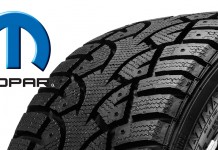A group of lenders to troubled automaker Chrysler withdrew their court challenge Friday against a government-backed bankruptcy restructuring plan for the auto giant, their lawyer said.
The move clears away one of the major hurdles to a swift emergence from bankruptcy protection for the troubled automaker.
The group had objected to President Barack Obama‘s administration plan to reduce Chrysler’s debt to help create a partnership with Italy’s Fiat.
“After a great deal of soul-searching and quite frankly agony, Chrysler’s non-TARP lenders concluded they just don’t have the critical mass to withstand the enormous pressure and machinery of the US government,” lawyer Tom Lauria said.
“As a result, they have collectively withdrawn their participation in the court case.”
The group is identified only as the “Chrysler Non-TARP Lenders,” because the members have not received aid under the government’s Troubled Asset Relief Program, a 700-billion-dollar measure to stabilize the financial system.
The announcement came shortly after investment fund Oppenheimer became the latest creditor to withdraw from the group which was castigated for pushing Chrysler into bankruptcy protection by refusing to accept a debt for equity swap.
Oppenheimer said it withdrew its opposition because “given the reduced number of senior creditors willing to continue to pursue an alternative” it determined that “senior creditors can no longer reasonably expect to increase the recovery rate on the debt they hold.”
Lauria said the remaining creditors still consider the proposal to be unfair and contrary to basic “legal, financial and business principals” and do not intend to consent to the proposal “despite their inability to continue active opposition to the stripping of their rights in the bankruptcy process.”
Chrysler, which filed for bankruptcy protection on April 30, said it hopes to wrap up the court process within 30 to 60 days by selling the automaker’s principal assets to a new company.
The new firm would be majority owned by the United Auto Workers (UAW) union, with small stakes by the US and Canadian governments, which would contribute some 10.5 billion dollars to the venture.
Fiat would initially take a 20 percent stake in the firm that would rise to 35 percent and could reach 51 percent as early as 2013 if Chrysler is able to repay its government loans.







